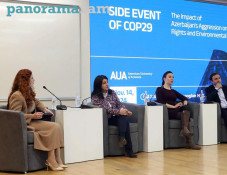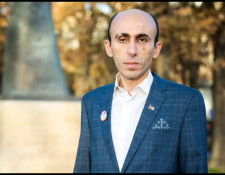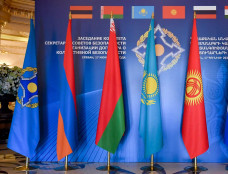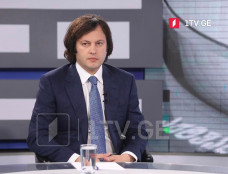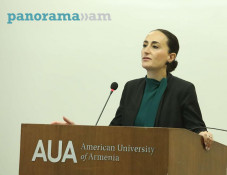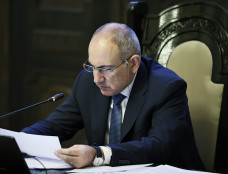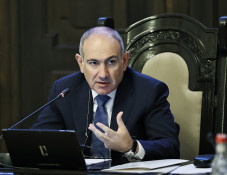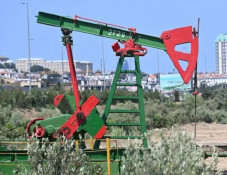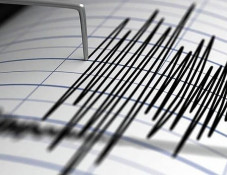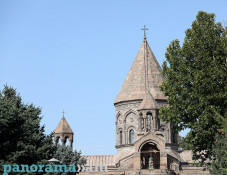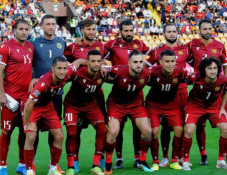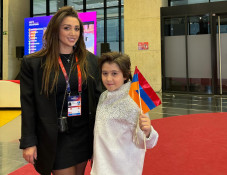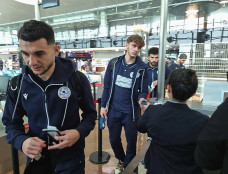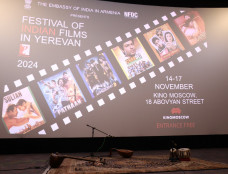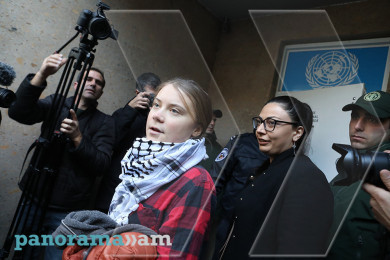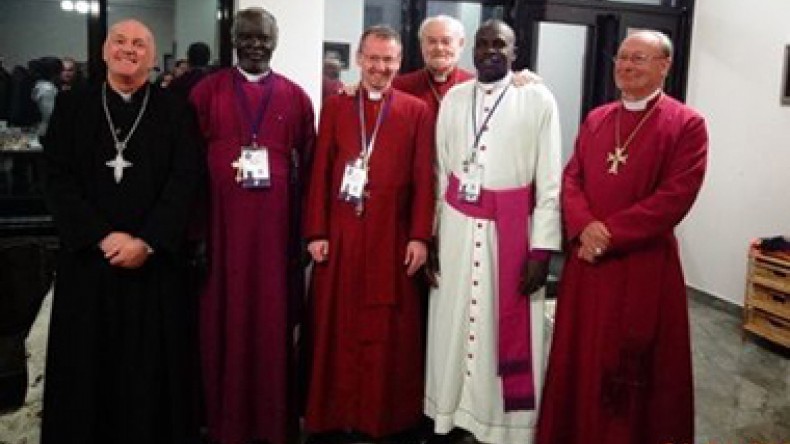
Anglican delegation participates in Armenian Genocide centenary events in Yerevan
From 22 to 24 April, Armenia’s capital city, Yerevan, was dominated by remembrance. A series of high profile events aimed to draw international attention to the terrible atrocities suffered by Armenians under the Ottoman Empire a hundred years ago. Patriarchs and prelates from Europe, Asia, Africa and America joined lawyers and political leaders to speak, to express solidarity, to show respect, says an article on the website of the Anglican Church Diocese in Europe, titled “Bishop Robert Writes from Armenian Remembrance Event.”
The article continues as follows:
Amongst those present was an Anglican delegation consisting of the Bishop of London, the Bishop in Europe, The Rt Revd. Christopher Hill (president of the Conference of European Churches), and two bishops from South Sudan: Enoch Tombe Stephen and Peter Mayom.
At the opening of a “global forum” on the first day, President Sargsyan said he hoped the centennial events would embody remembrance, gratitude (for the sacrifice of so many), prevention (of similar disasters) and revival (of Armenian nationhood).
The centrepiece of the events occurred on the second day, with the mass canonisation at the Armenian spiritual centre of Holy Etchmiadzin of the estimated 1.5 million victims. In this ceremony Armenia was wanting to say that those who had died in the shootings and forced marches were not merely victims, but heroes who had held on to their Christian faith through persecution and who could inspire faith and patriotism today. In front of a great assembly, a huge icon to the martyrs was dedicated and powerful speeches were made by Armenian church leaders.
This was followed, on the third day, by a multi-faceted act of commemoration before the eternal flame (for remembrance) and impressive shard (symbolising national rebirth) that constitute Armenia’s genocide memorial complex. The event began with speeches from the five heads of state present – Armenia, Cyprus, Serbia, France and Russia. This was followed by a proper liturgy, with prayers and bible readings – which may have surprised leaders from more secular western countries. A minute’s silence, the showing of some harrowing footage of the events of 1915 and the laying of individual red roses around the eternal flame completed the ceremony.
On the afternoon of the national commemoration, the Anglican delegation was invited for an audience with the Catholicos, the head of the Armenian Apostolic Church, at Holy Etchmiadzin. His Holiness could hardly have been warmer or more welcoming: “my home is your home”, he said. Amongst the Anglican responses, Bishop Peter spoke movingly of how he had been inspired by the example of Armenia to believe that rebuilding in his own country of South Sudan after similarly horrific events might be possible.
The stay concluded with a social evening at the home of The Revd. John Barker, who is chaplain of the Anglican Church in Yerevan, alongside his ‘day job’ advising on agricultural development with the E.U External Action Service. It was a delight to meet some of the thoroughly international congregation who meet for English-speaking worship in the city, with the encouragement and support of the Catholicos.
It was a deeply moving, unforgettable, three days. On the long plane journey home I wondered whether President Sargsyan’s aims had been achieved. Remembrance and gratitude were in plentiful supply. National revival – well, I hope the international attention lavished on Armenia has at least encouraged this geographically isolated and poverty-stricken nation. But prevention? “Why”, asked our Eastern brothers and sisters, “are the Western churches not doing more to prevent the ongoing persecution and killing of Christians even today in the Middle East?” It is a difficult question to answer. The plain fact is that we lack the international institutions necessary to secure and enforce world peace. The genocidal tendency lurks within the human spirit – that fear of the other which, in its most malevolent form, treats the other not as a person but as an object that may be annihilated or ‘cleansed’. The events in which I participated in Yerevan certainly caused me to grieve for the wrongs done to the Armenian people and to lament the slowness of the world in properly recognising these wrongs. But beyond that, I wondered what it would take for world leaders to develop the structures and institutions and the sheer political will to make sure that the wholesale persecution and killing of people because of their creed, race or ethnic background is properly punished and prevented.
Newsfeed
Videos





